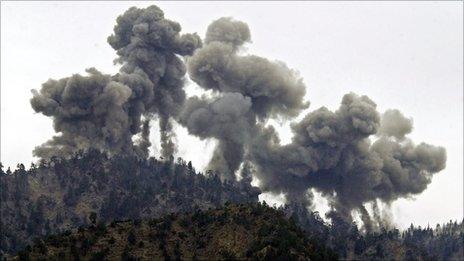Afghanistan memories from 40 Commando Royal Marines
- Published
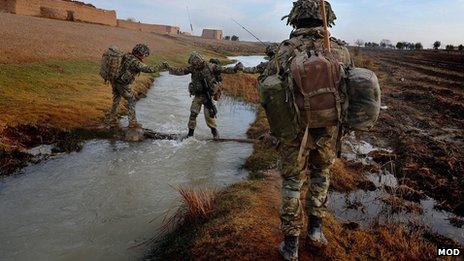
Royal Marines carried out patrols in the Nahr-e-Saraj district as part of their duties in their final deployment
Royal Marines from 40 Commando have been closely involved in Afghanistan since the aftermath of 9-11.
The unit's involvement began when they supported Special Forces in the hunt for Osama Bin Laden in the Tora Bora mountain caves.
As government policy changed in the years after 2001, each deployment has come with its own goals and sacrifices, such as Operation Herrick 12 when 14 Royal Marines lost their lives in 2010.
Here, some Royal Marines share their experiences.
Sacrifice and friendship
Royal Marine, Robbie Neen was on the final deployment to Afghanistan, when Cpl David O'Connor was killed in a gun battle on 24 October 2012.
He said: "Everyone was shocked. It was quiet up until that point, and when it did happen, everyone was speechless really.
"It was a sad, sad loss for 40. You pay your respects and then you have to get on with your job once you're out there."
Warrant Officer 2 Andy Staff said: "You never get used to it, because the Royal Marines are a relatively small organisation in the military. But each loss is felt. You have to just get on with it, the job doesn't stop."
"We are a very close-knit community anyway, but when you go to somewhere like Afghanistan, those bonds become even closer because you're living with somebody day in and day out."
'The early days'
Colour Sgt Dominic Conway said that when he was initially deployed, 40 Commando was giving support to Special Forces in "hunting the Taliban down".
"We'd initially gone in there straight after 9/11 and we were doing basically what soldiers do, going out on the ground trying to find evidence of insurgents, although we didn't call them that at the time," he said.
"With the help of the Northern Alliance, we were looking to get rid of the Taliban.
"It wasn't for a huge amount [of time], it was exciting, I was relieved to be involved in it, I count my blessings really," added Colour Sgt Conway.
Moving forward
The main purpose of the final tour has been handing over to the Afghan forces as part of staged withdrawal due to be completed by the end of 2014.
Sgt Robert Norcliffe has served on Operation Herrick 5, 6 and 7.
He said: "With Gereshk, the way things are different compared to five years ago when I was there last, is how much busier that town is now.
"We moved through that town with a lot less aggressive posture than we did in 2007.
"People feel safe, it was always a market town and when everyone was fighting there, the British, the Taliban, the American forces, people leave.
"Once there's a little bit of confidence, a little bit more security, it gets to the point where it gets busier and busier to the point where you can barely get vehicles down the road."
'Future for Afghanistan'
Colour Sgt Conway said: "Over the years, we've managed to degrade them. The leadership might be there, but the Taliban or insurgency is pretty much defunct.
"It will be remembered as a 10-year part of my career, I think what we've done out there has worked, I feel a sense of pride and a sense of achievement to do that.
"My wife says I feel more for a bloke I shared a tent with for six months, but I'm sure she's wrong on that."
Warrant Officer 2 Andy Staff said: "The security forces have brought on the local Afghan forces to a massive extent. They were basically non-existent when I first went out there.
"They will never be as good as the Americans, the French, the British, they just haven't got that grounding but they are infinitely better than they ever were before.
"The big question is can the country keep paying them, if the country can keep on paying them, I think there is a future for Afghanistan."
- Published9 April 2013
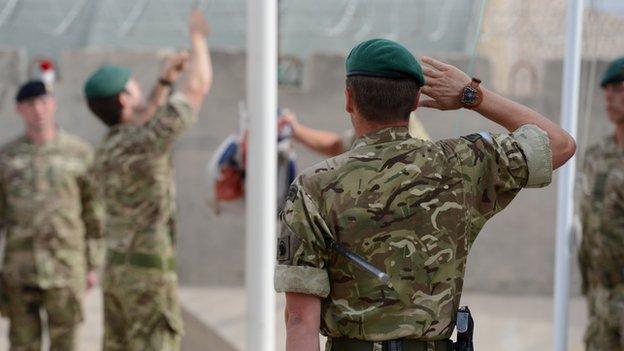
- Published15 October 2015
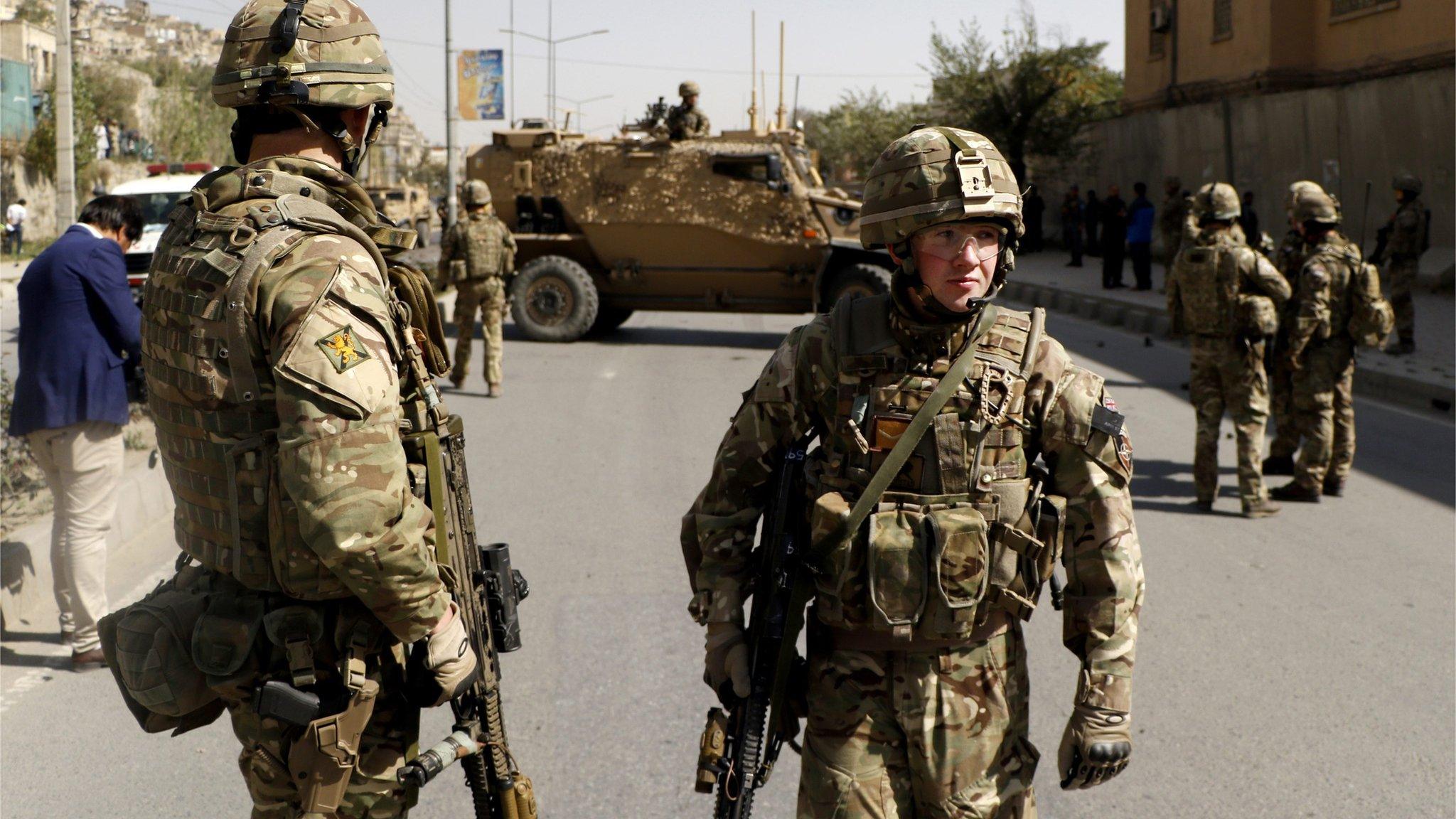
- Published1 April 2013
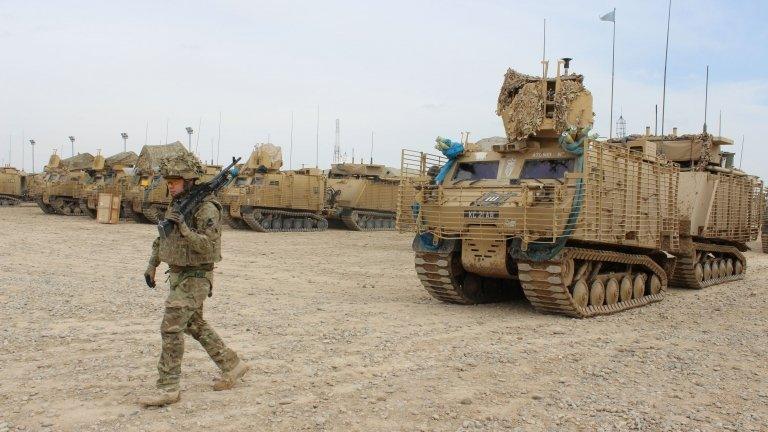
- Published3 November 2015
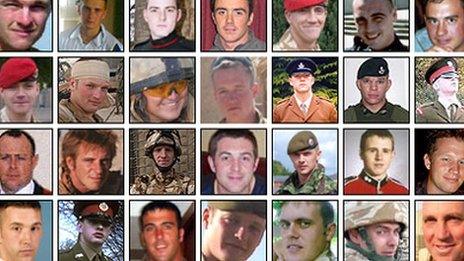
- Published24 September 2012
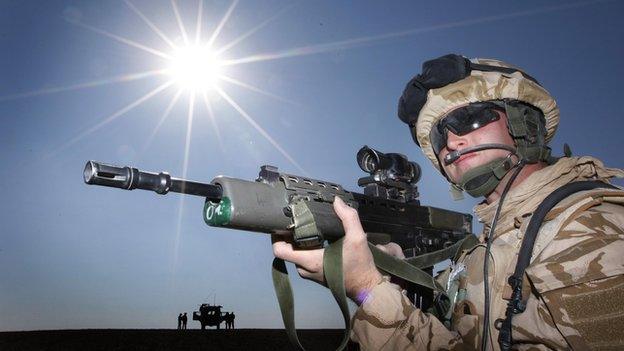
- Published25 March 2013
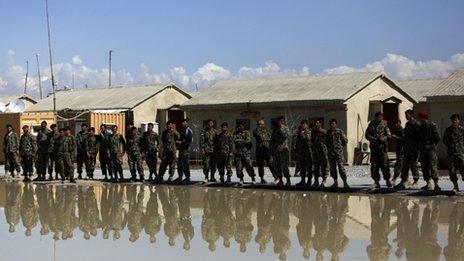
- Published21 July 2011
